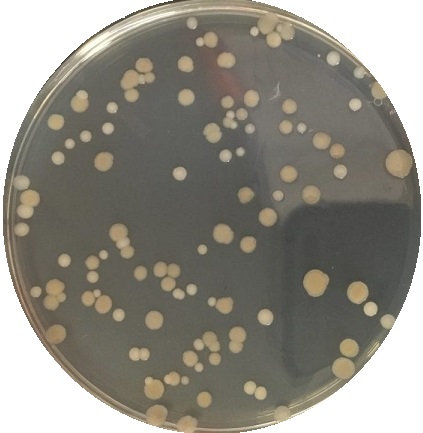The FDA sent a warning letter to Yost Foods Brunswick, Ohio. In the letter, the FDA auditors report that they collected environmental samples that after analysis showed to be positive for Listeria monocytogenes. The FDA data showed that a product of Yost tested ( Aji Amarillo paste)positive for L. monocytogenes. Whole-genome sequencing analysis showed the L. monocytogenes isolates from the environmental swabs collected by FDA were the same strain as that in the finished product Aji Amarillo paste tested by your customer. The company recalled the product. The FDA concluded that the product was prepared, packaged and held under insanitary conditions. @ https://www.fda.gov/inspections-compliance-enforcement-and-criminal-investigations/warning-letters/yost-foods-inc-581473-09102019
ruth
CGMP/Food/Prepared, Packed or Held Under Insanitary Conditions/Adulterated/L. monocytogenes
ruth
The FDA announced on its website that Savannah Food Company, Inc. recalled certain formulations of Cornbread Dressing and Bread Stuffing that included frozen diced eggs supplied to our company by Almark Foods of Gainesville, GA. Products that contained frozen diced eggs from Almark Foods have the potential to be contaminated with Listeria monocytogenes. The products were distributed through wholesale distributors to restaurants, delis, cafeterias, and foodservice establishments in the following states: Tennessee, Alabama, Texas, Mississippi, North Carolina, South Carolina, Georgia, Florida, and Arkansas. The affected products were packaged in either plastic or aluminum trays. To date, there have been no confirmed illnesses related to the above items. @ https://www.fda.gov/safety/recalls-market-withdrawals-safety-alerts/savannah-food-company-inc-voluntarily-recalls-cornbread-dressing-and-bread-stuffing-products-due?utm_campaign=Savannah%20Food%20Company%2C%20Inc.%20Voluntarily%20Recalls%20Cornbread%20Dressing%20and%20Bread%20Stuffing%20Products&utm_medium=email&utm_source=Eloqua
Products that contained frozen diced eggs from Almark Foods have the potential to be contaminated with Listeria monocytogenes
ruth
Quesos La Ricura LTD. of Hicksville, NY, recalled 12 oz. packages of Cotija Cheese (Queso Cotija) because it may be contaminated with Shiga toxin-producing E. coli (STEC) bacteria. Cotija Cheese (Queso Cotija) was distributed through retail stores in NY, NC, PA, GA, FL. This product comes in a plastic-wrapped yellow styrofoam container with a label reading “Quesos La Ricura Queso Cotija, Cotija Cheese aged over 60 days” UPC: 7 69087 00933 6 and a weight of 12 oz. This information only applies to “Sell By” date May 20, 2020-3/ May 20, 2020-4. No illnesses have been reported to date. The voluntary recall was initiated after the Florida Department of Agriculture testing found the E. coli in a retail sample.
https://www.fda.gov/safety/recalls-market-withdrawals-safety-alerts/quesos-la-ricura-ltd-recalls-cotija-cheese-queso-cotija-because-possible-health-risk
Quesos La Ricura LTD. of Hicksville, NY, is recalling 12 oz. packages of Cotija Cheese (Queso Cotija) because it may be contaminated with Shiga toxin producing E. coli bacteria (Shiga toxin producing E. coli).
ruth
Food Safety News reported that Federal officials confirmed another E. coli outbreak that they had previously not revealed to the public. At least four states have reported E. coli O157:H7 cases with confirmed patients, who ate at fast food locations, were lettuce on Subway sandwiches, according to a source close to the investigation. Neither the FDA nor the CDC would confirm that Subway products are involved. “No new illnesses have been reported since the CDC initially identified this cluster, and the outbreak is over. CDC is continuing to work with the FDA to identify the source of the outbreak.” The four states are Nevada, Maine, Vermont and New Hampshire, according to a source close to the investigation. Spokespeople from FDA and CDC told Food Safety News that because they believed all of the implicated romaine had passed expiration dates by the time the outbreak was discovered, agency officials did not think the public needed to know. @ https://www.foodsafetynews.com/2020/01/feds-again-withhold-information-about-e-coli-outbreak-fast-food-restaurant-chain-implicated/
Federal officials today confirmed another E. coli outbreak that they had previously not revealed to the public. Specific details were not available from




